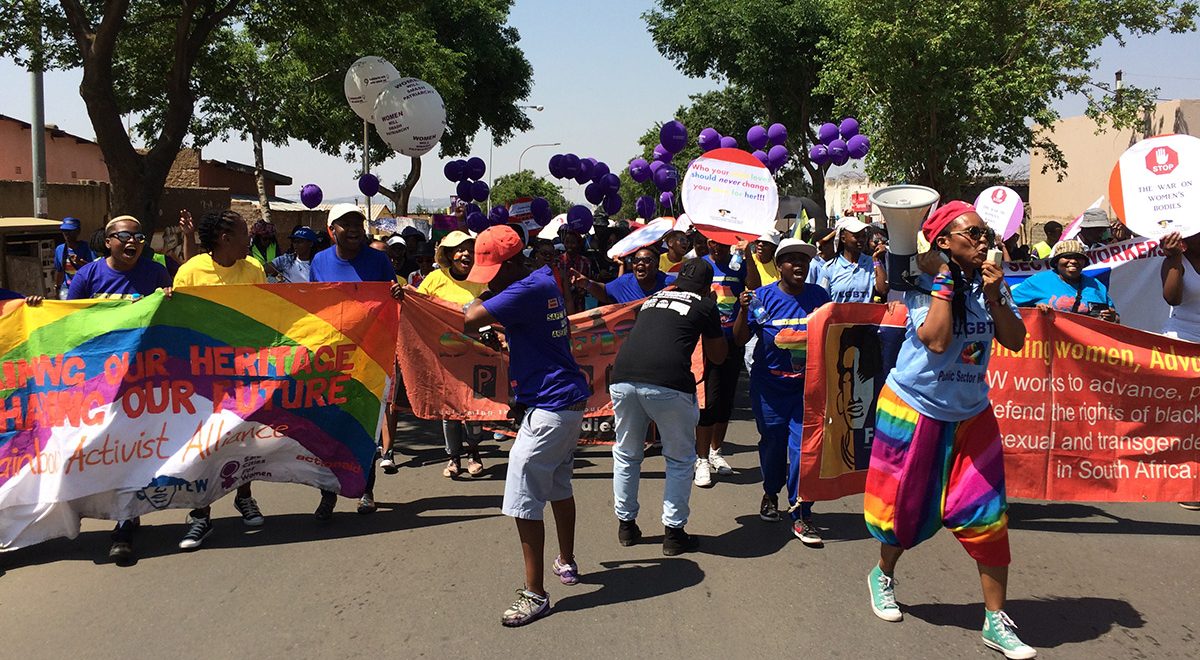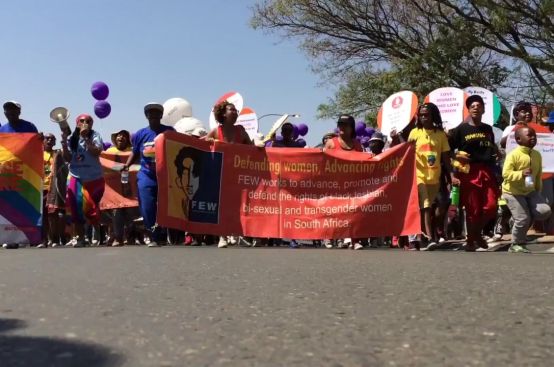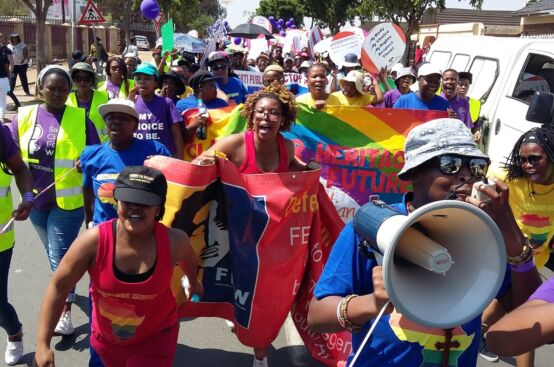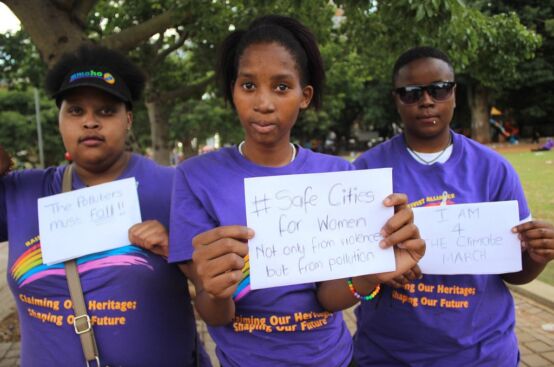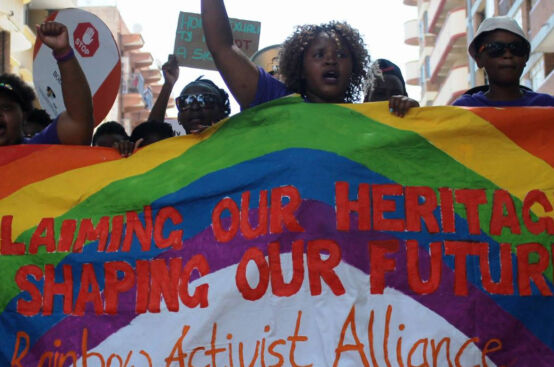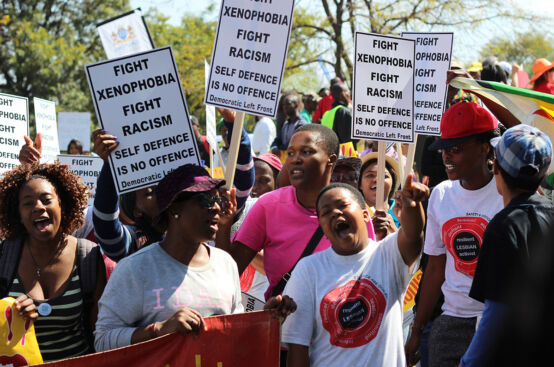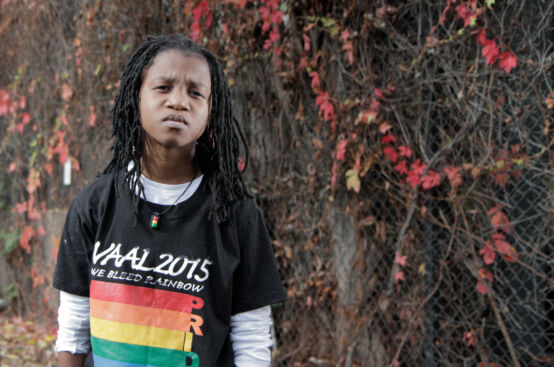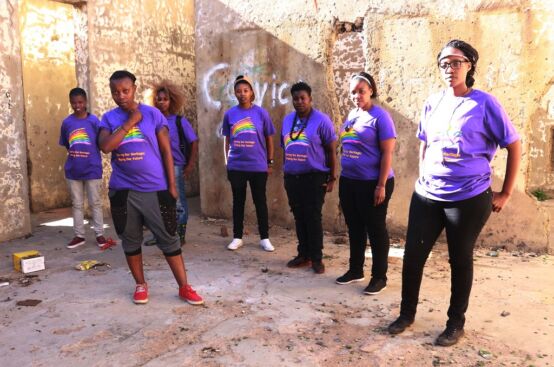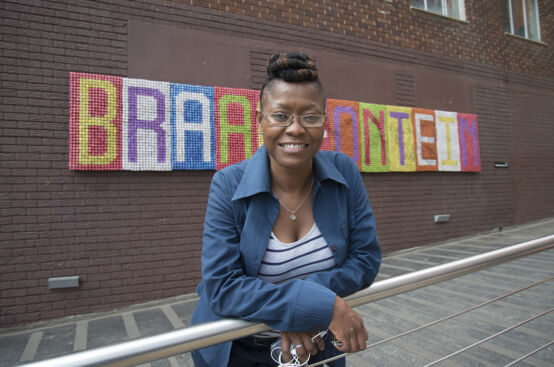When it comes to the rights of LGBTQI people, South Africa has one of the most progressive legal frameworks in the world. In 2006, it became the first – and only, to date – African country to legalize same-sex marriage. Yet the increase in violence against lesbian women in the country shows that there is an alarming disconnect between what’s written in the law, and reality.
In a 2015 survey of 30,000 people in the Johannesburg area, 56% of respondents supported LGBTQI rights, a decrease from 71% in 2013. Fourteen percent of respondents said it was acceptable to be violent towards gay and lesbian people. This means one in seven people might physically hurt an LGBTQI person.
Just over half a million South Africans, or about 1% of the population, identify as LGBTQI or gender non-conforming.
Busi, an LGBTQI activist from Johannesburg’s townships, explains what it’s like for her to live as a lesbian woman:
“I choose to claim my space. It’s not easy. Everywhere I go with my partner it’s always an issue. I don’t feel safe in my streets, because I’ve already gotten threats from different guys that I don’t know.”
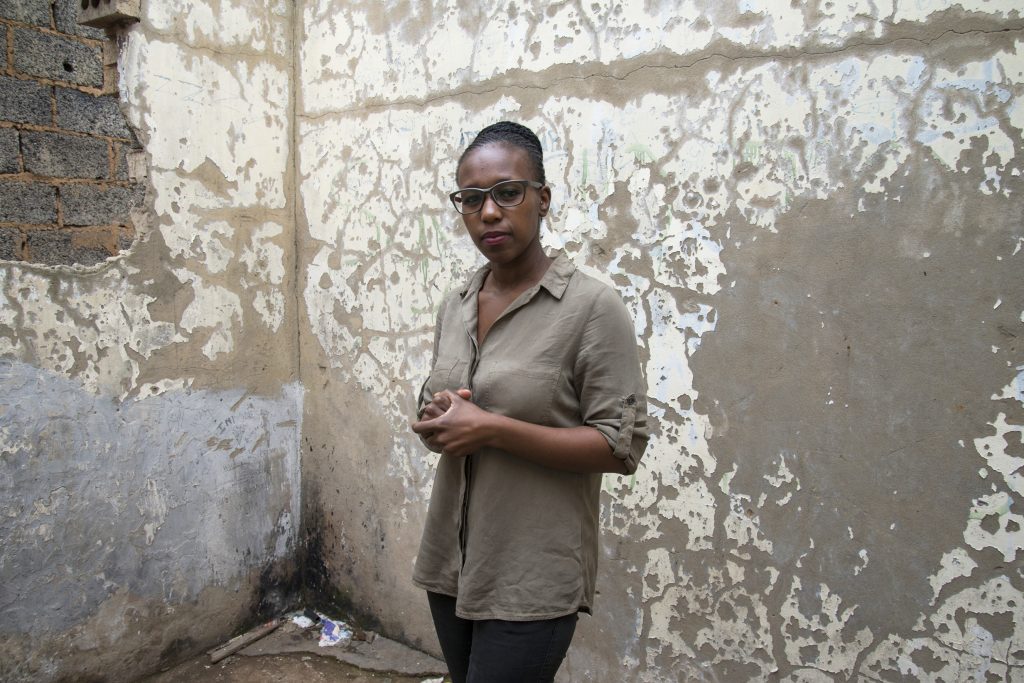
LGBTQI activist Busi stands at the site where her friend was murdered, in a township outside Johannesburg, South Africa. Photo: Eva-Lotta Jansson/ActionAid
Often verbal and physical assaults can lead to death. As Busi talks about the brutal rape and murder of one of her friends who was a lesbian woman, she says:
“Coming here [to the crime scene] is really traumatic, because it reminds me that it could be me next time. It could be somebody that I know next time. It’s not that I’m so brave to face this, but I know this is something that I have to face, because it’s something that is happening in this community.”
The streets aren’t the only place lesbian women experience harassment.
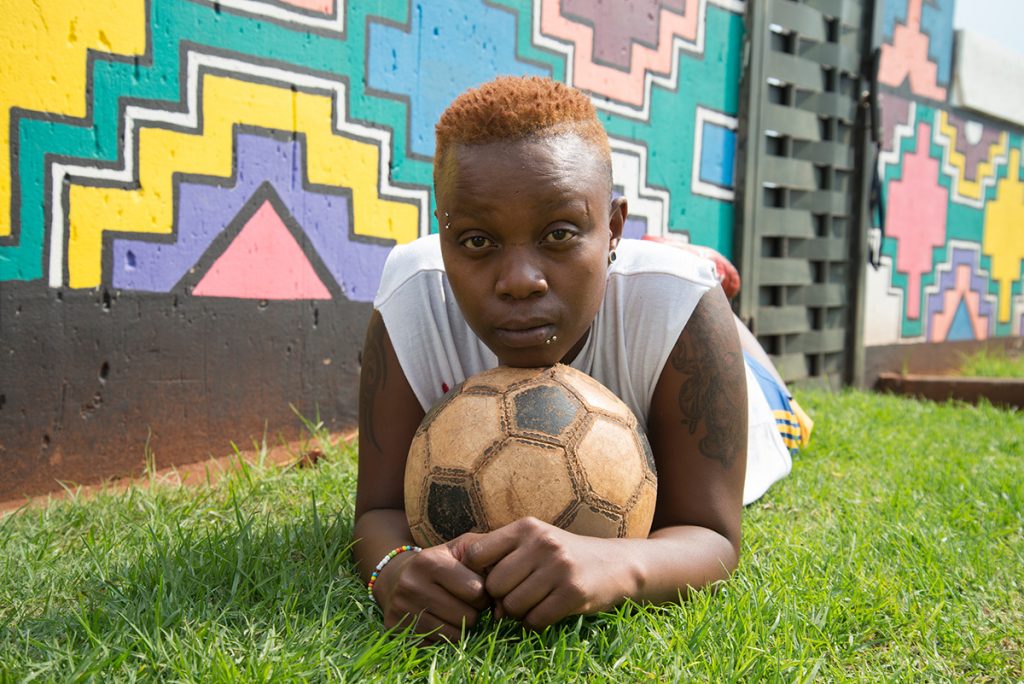
LGBTQI activist Matohidiso. Photo: Eva-Lotta Jansson/ActionAid
Matohidiso, another LGBTQI activist in Johannesburg, says violence against LGBTQI people can be found throughout the education and health systems. She says these institutions are fundamentally biased against them. For example, both schools and clinics label lesbian women and girls as “males”. Matohidiso says:
“When I was eleven, I [dropped out of] school, because the discrimination and homophobia was too much… We cannot access health institutions due to the attitude of nurses. They’re more interested in your sexual orientation than why are you sick or why are you here.”
It was in the midst of this toxic environment that ActionAid South Africa started a three-year project in 2013 to create safe spaces for the LGBTQI community in Johannesburg. Formed in reaction to the rape and murder Busi talked about above, the Rainbow Activist Alliance (RAA) works with more than 450 lesbian and bisexual women to challenge the patriarchal and discriminatory attitudes and perceptions in their communities that fuel violence.
Working with our local partner – the only organization in South Africa that focuses on the needs and interests of Black lesbian and bisexual women – we provide training so that the women know their rights and what to do if they are threatened or attacked. Women who have received this training sit on the National Task Team on Hate Crimes. They advise the government on improvements that can be made to the way courts respond to LGBTQI cases.
One of RAA’s campaigns is to end “corrective rape” in South Africa. Corrective rape is a hate crime – essentially the perpetrator justifies what they’re doing by saying they’re trying to make an LGBTQI person “straight”. It is an egregious form of violence, and RAA is one of the leading organizations in South Africa fighting to end it.
As they build their leadership and confidence and access the knowledge, tools, and resources they need, the RAA activists are making their communities safer. They have worked with teachers and school administrations to draft new codes of conduct that better protect LGBTQI students. They have also developed positive relationships with clinics and are collaborating with them to assist LGBTQI patients. And they’re helping people to be more open-minded. Matohidiso says:
“More parents are coming to us to ask, ‘I have an LGBTI daughter. How do I deal with that?’ We’ve educated a lot of people.”
